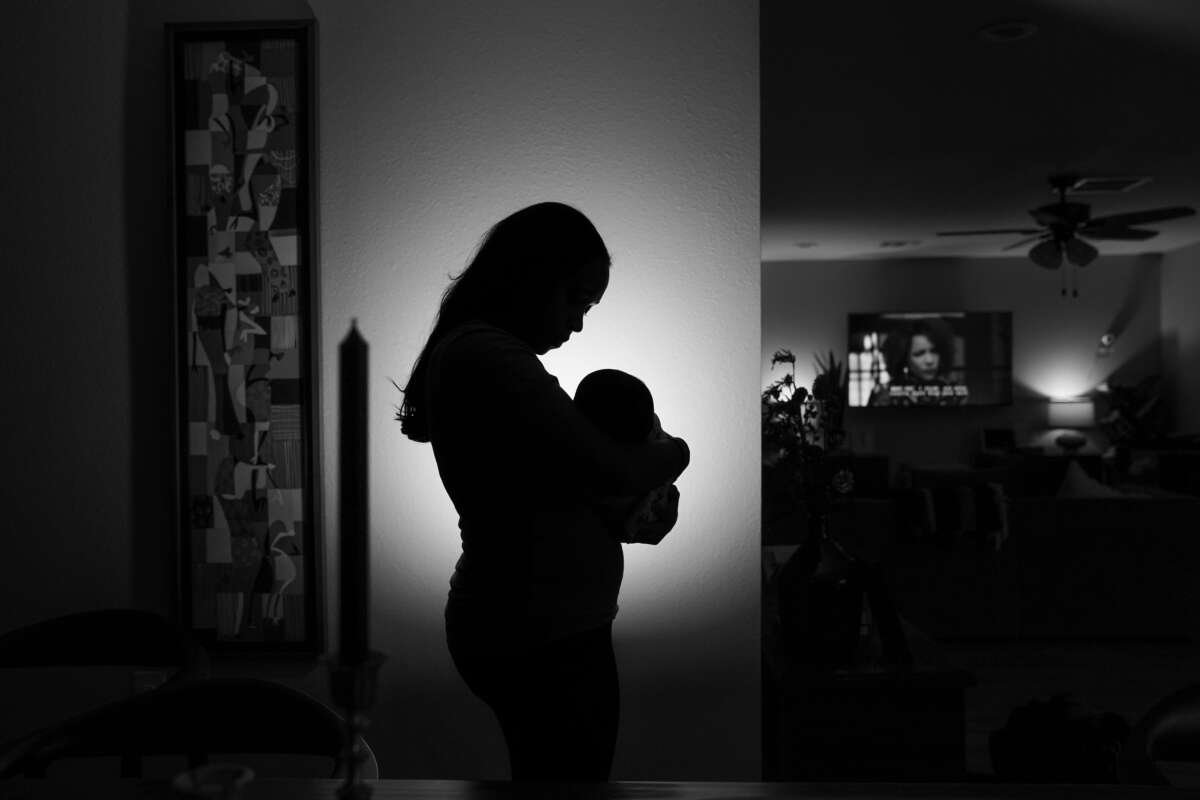Support justice-driven, accurate and transparent news — make a quick donation to Truthout today!
Sen. Elizabeth Warren of Massachusetts and Rep. Gwen Moore of Wisconsin, both Democrats, are introducing legislation Thursday that would allow Medicaid coverage of doulas and midwives. The bill, called the Mamas First Act, aims to “improve access to care before, during, and after pregnancy to under-served and under-resourced communities” as an OB-GYN deficit looms and the high rates of pregnancy-related deaths persist.
The nonprofit March of Dimes in 2020 classified 1,119 counties in the U.S. as pregnancy care deserts, lacking a hospital or birth center that either offers obstetric care or has an obstetric provider. More than a quarter of Native-American babies and 16 percent of Black babies were born in areas with limited or no access to pregnancy care services, it found. The ongoing loss of obstetric providers, in particular, has impacted counties’ access to care.
Even as parts of the United States, particularly rural areas, grapple with a current lack of access to pregnancy care, the Department of Health and Human Services projects 3,360 fewer OB-GYNs will be in the workforce by 2030 than there were in 2018. Simultaneously, 3,120 more certified nursing midwives will be in the workforce by 2030 than in 2018.
If enacted, the Mamas First Act would amend Title XIX of the Social Security Act to add “services and care, including prenatal, delivery, and postpartum care, that is provided in a culturally congruent manner by doulas, midwives, and tribal midwives” to the list of services eligible for reimbursement through Medicaid.
Some of these services are already covered by states and Washington, D.C.: According to the National Academy for State Health Policy, California, Maryland, Massachusetts, Michigan, Minnesota, Nevada, New Jersey, New York, Oklahoma, Oregon, Rhode Island and Virginia already offer doula services as an optional benefit through the state’s Medicaid program.
Similar legislation has been introduced at the federal level before and not made it into law.
“America’s ongoing maternal health crisis magnifies the need for federal interventions that can save lives,” Moore said in a statement. Moore previously introduced the Mamas First Act in 2019 with 11 cosponsors, all Democrats, and again in 2022 with only four cosponsors, this time all Democratic women. “The Mamas First Act is an important effort because it will expand access to providers who can offer emotional and physical support during and after the birthing process — comprehensive beyond the hospital setting where nearly all U.S. births occur.”
Research shows that birthing people who received care from a doula, or someone who is there to support them throughout their birthing experience, had 52.9 percent lower odds of having a cesarean delivery and were 57.5 percent less likely to develop postpartum depression or anxiety.
“Now is the time to use all available tools to combat the maternal health crisis. … The Mamas First Act will take care of our mommas and babies, and will help us root out the deep disparities and systemic racism in our healthcare system,” Warren said in a statement.
In 2022, there were 817 pregnancy-related deaths, down from 1,205 in 2021, according to the Centers for Disease Control and Prevention. Black birthing people’s pregnancy mortality rate continues to outpace the national average, though it did decrease from 69.9 deaths per 100,000 live births in 2021 to 49.5 deaths per 100,000 live births in 2022.
Warren first introduced this bill in the Senate in 2022 with seven co-sponsors, two of whom, Sens. Cory Booker of New Jersey and Robert P. Casey Jr. of Pennsylvania, returned to co-sponsor this bill.
Democratic Reps. Ayanna Pressley of Massachusetts, Lauren Underwood of Illinois, Alma Adams of North Carolina and Debbie Dingell of Michigan are the sole co-sponsors on the House bill, and all of them are returning co-sponsors from the 2022 legislation. Underwood and Adams lead the bipartisan Black Maternal Health Caucus.
“Maternal mortality remains significantly higher in the United States than in other comparable countries, especially for Black mothers. This legislation addresses the maternal mortality crisis by expanding Medicaid to include doula and midwifery care, because having trusted partners in the birthing process saves lives,” Adams said in a statement.
Several organizations, such as the Black Mamas Matter Alliance, the National Birth Equity Collaborative and the African American Breastfeeding Network, have expressed their support for the legislation.
“Many states, especially in the southern region of the U.S., are in significant need of high-quality, holistic, and comprehensive maternity care. Passage of the Mamas First Act can help strengthen maternity care workforce efforts,” Angela D. Aina, the executive director of the Black Mamas Matter Alliance, said in a statement.
A terrifying moment. We appeal for your support.
In the last weeks, we have witnessed an authoritarian assault on communities in Minnesota and across the nation.
The need for truthful, grassroots reporting is urgent at this cataclysmic historical moment. Yet, Trump-aligned billionaires and other allies have taken over many legacy media outlets — the culmination of a decades-long campaign to place control of the narrative into the hands of the political right.
We refuse to let Trump’s blatant propaganda machine go unchecked. Untethered to corporate ownership or advertisers, Truthout remains fearless in our reporting and our determination to use journalism as a tool for justice.
But we need your help just to fund our basic expenses. Over 80 percent of Truthout’s funding comes from small individual donations from our community of readers, and over a third of our total budget is supported by recurring monthly donors.
Truthout has launched a fundraiser, and we have a goal to add 231 new monthly donors in the next 48 hours. Whether you can make a small monthly donation or a larger one-time gift, Truthout only works with your support.
